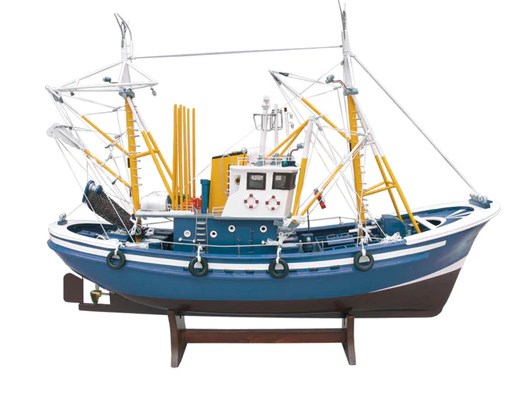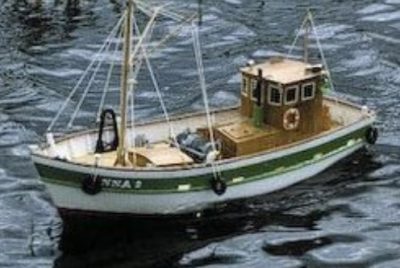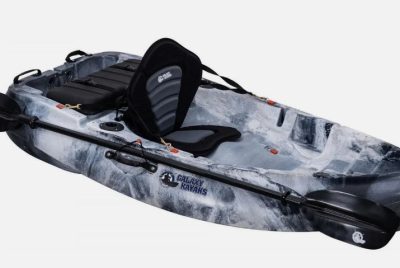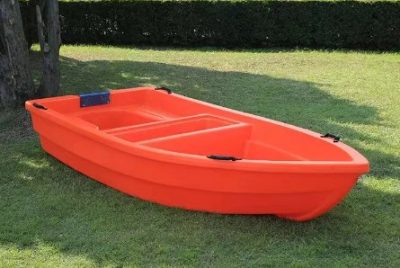Types of Fishing Boats
Introduction
If you’re anything like me, fishing isn’t just a hobby; it’s a passion. And having the right boat can make all the difference between a good day on the water and a great one. Let’s dive into the different types of fishing boats available and find the one that’s perfect for you.
Why the Right Fishing Boat Matters
Matching the Boat to the Fishing Style

Choosing the right fishing boat isn’t just about picking something that looks good. It’s about matching the boat to the type of fishing you love. Whether you’re into bass fishing, deep-sea adventures, or something in between, the right boat will enhance your experience and help you get the most out of every trip.
Considering Your Fishing Environment
Different environments call for different types of boats. Are you fishing in calm lakes, fast rivers, or the open sea? The right boat will handle the specific challenges of your chosen environment, ensuring safety and comfort.
Common Types of Fishing Boats
Bass Boats
Features and Benefits
Bass boats are designed specifically for bass fishing in freshwater. They are sleek, fast, and equipped with features like high-tech fish finders and powerful trolling motors. The low profile helps you get close to the water, making it easier to cast and reel in your catch.
Best Uses

Bass boats excel in freshwater lakes and rivers. They’re perfect for competitive anglers who need speed and agility to reach the best spots quickly.
Center Console Boats
Features and Benefits
Center console boats are versatile and great for both inshore and offshore fishing. The design features a central control area, providing 360-degree access for fishing. They are often equipped with robust engines, ample storage, and plenty of rod holders.
Best Uses
These boats are ideal for saltwater fishing, whether you’re staying near the shore or heading offshore. They handle rough waters well and offer plenty of space for maneuvering.
Pontoon Boats
Features and Benefits

Pontoon boats are all about comfort and space. They have wide, flat decks supported by pontoons, making them stable and perfect for leisurely fishing trips. Many come with amenities like comfortable seating, sunshades, and even small grills.
Best Uses
Pontoon boats are great for family fishing trips on lakes and slow-moving rivers. Their stability and comfort make them a favorite for casual anglers who want to relax and enjoy the day.
Jon Boats
Features and Benefits
Jon boats are simple, flat-bottomed boats that are lightweight and easy to maneuver. They’re typically made of aluminum, making them durable and affordable. These boats are perfect for shallow waters and can be powered by small outboard motors or paddles.
Best Uses
Jon boats are excellent for shallow rivers, creeks, and small lakes. They’re a favorite among freshwater anglers who need a versatile and budget-friendly option.
Kayaks and Canoes
Features and Benefits

Fishing kayaks and canoes offer an intimate fishing experience. They’re quiet, allowing you to get close to fish without spooking them. Modern fishing kayaks often come with built-in rod holders, storage compartments, and comfortable seating.
Best Uses
These are perfect for small lakes, rivers, and streams. They’re great for solo anglers who appreciate a hands-on, stealthy approach to fishing.
Offshore Sportfishing Boats
Features and Benefits
Offshore sportfishing boats are built for big-game fishing in deep waters. They are large, powerful, and equipped with everything you need for a long day at sea, including large fuel tanks, cabins, and sophisticated navigation systems.
Best Uses
These boats are designed for the open ocean, making them perfect for chasing marlin, tuna, and other large species. They provide stability and comfort even in rough seas.
Flybridge Boats
Features and Benefits

Flybridge boats feature an elevated control area, offering excellent visibility. They often have spacious decks, cabins, and plenty of amenities for long trips. The flybridge provides an excellent vantage point for spotting fish.
Best Uses
Ideal for both inshore and offshore fishing, flybridge boats are great for those who want a comfortable and well-equipped vessel for extended trips on the water.
Choosing the Right Fishing Boat for You
Assessing Your Needs and Budget
Start by determining what type of fishing you’ll be doing most often. Then, set a budget. Fishing boats can range from a few hundred to several hundred thousand dollars. Knowing what you need and what you can afford will help narrow down your choices.
Considering Size and Capacity
Think about how many people will be joining you on your fishing trips. If you often fish with family or friends, you’ll need a boat with enough space and seating. Also, consider storage for gear and any additional equipment you might need.
Evaluating Engine Types and Power
The engine is the heart of your boat. Consider the type of engine that suits your fishing style. Outboard motors are common and versatile, while inboard engines are powerful and often found in larger boats. Make sure the engine has enough power to handle your fishing environment and needs.
Maintenance and Care for Fishing Boats
Regular Cleaning and Inspection

Keeping your boat clean and well-maintained is crucial. After each trip, rinse your boat with fresh water to remove salt and debris. Regularly check for any signs of wear and tear, and address issues promptly to avoid costly repairs.
Engine Maintenance
Regular engine maintenance is essential for keeping your boat running smoothly. Follow the manufacturer’s guidelines for oil changes, filter replacements, and other routine tasks. Proper maintenance will extend the life of your engine and ensure reliable performance.
Storing Your Boat Properly
Proper storage protects your boat from the elements and prolongs its lifespan. If you’re storing it outdoors, invest in a quality cover to shield it from weather damage. For long-term storage, consider indoor options or professional storage facilities.
Joining the Fishing Boat Community
Local Fishing Clubs and Groups
Joining a fishing club or group can enhance your experience. You’ll meet fellow anglers, share tips, and enjoy organized trips. It’s a great way to learn more about different boats and fishing techniques.
Online Forums and Resources
Online forums are treasure troves of information. You can connect with other boat owners, ask questions, and find reviews on various types of boats. Websites and social media groups are also excellent resources for buying and selling fishing gear.
Attending Boat Shows and Events
Boat shows are perfect for seeing the latest models and innovations in fishing boats. You can talk to manufacturers, compare different boats, and even test some out. Events like these are great for getting hands-on experience and making informed decisions.
Conclusion
Choosing the right fishing boat can transform your fishing experience. From the versatility of center console boats to the comfort of pontoons, there’s a perfect boat out there for every angler. Assess your needs, consider your environment, and dive into the vibrant community of fishing boat enthusiasts. With the right boat, every fishing trip can be an adventure.
FAQs
1. What type of boat is best for freshwater fishing?
Bass boats and Jon boats are excellent for freshwater fishing, offering speed, agility, and ease of use in lakes and rivers.
2. How do I maintain my fishing boat engine?
Regular maintenance includes oil changes, filter replacements, and periodic inspections. Follow the manufacturer’s guidelines for best results.
3. What is the average cost of a fishing boat?
Fishing boat prices vary widely. Entry-level Jon boats can cost a few hundred dollars, while high-end offshore sportfishing boats can run into the hundreds of thousands.
4. Can I use a kayak for deep-sea fishing?
While kayaks are great for inshore and freshwater fishing, they are generally not suitable for deep-sea fishing due to their size and stability.
5. What are the essential safety items for a fishing boat?
Essential safety items include life jackets, a first aid kit, a fire extinguisher, signaling devices (like flares or a horn), and a marine radio. Always ensure your boat is equipped with these before heading out.




